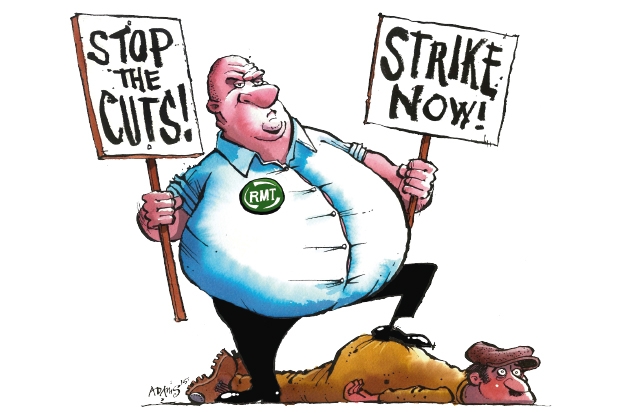Who is being more rational in the dispute over new striking laws: the government or the union barons? With just under a week to go until the summer recess, the government will begin fulfilling another manifesto commitment by introducing new legislation to the Commons today that will reform striking rules. The Trades Union Bill will require a 50 per cent turn out for ballots on industrial action and in core public services (schools, health, transport and fire services), 40 per cent of those who are eligible to vote will need to back a strike.
While the unions may see this as 1980s-esque battle to the death, the government is arguing that is is simply readjusting the balance between the unions and the public. On the Today programme, the skills minister Nick Boles said the new legislation will bring a ‘reasonable and fair balance between the interests of trade unions and the interests of people who are trying to get a work on time’:
‘The right to strike is absolutely something we must maintain and indeed, most recent strikes if you actually look at the figures would have passed these thresholds … we have a responsibility to think about people using the services.’
One of the more contentious elements of the Trades Union Bill is removing the automatic political party opt-in for union members. This will cause a particular headache for the Labour party, who continue to receive significant chunks of funding from the unions. Yet, it has been the trade union barons, not Labour, who have been talking up how utterly terrible this bill will be.
Mick Whelan, the general secretary of Aslef union, said the new legislation has a ‘smack of Germany in the 1930s’. Len McCluskey has removed wording from Unite’s union’s constitution to ensure all strikes are lawful, promising that Unite will not ‘passively submitting to unjust laws’. Frances O’Grady of the TUC said ‘it reads like something straight out of a George Orwell novel’.
The unions clearly want to protect their turf, but for ordinary members of the public to hear this kind of rhetoric, it is the Tories who appear the reasonable ones. Talk of a ‘democratic outrage’ simply doesn’t wash. As former trade unionist Leo McKinstry argued in the Spectator last week, the unions are no longer concerned with serving working people. Instead, their chief aim is to protect their own interests through blackmail and arrogance. The unions’ response to this new bill is yet another example of this attitude.






Comments